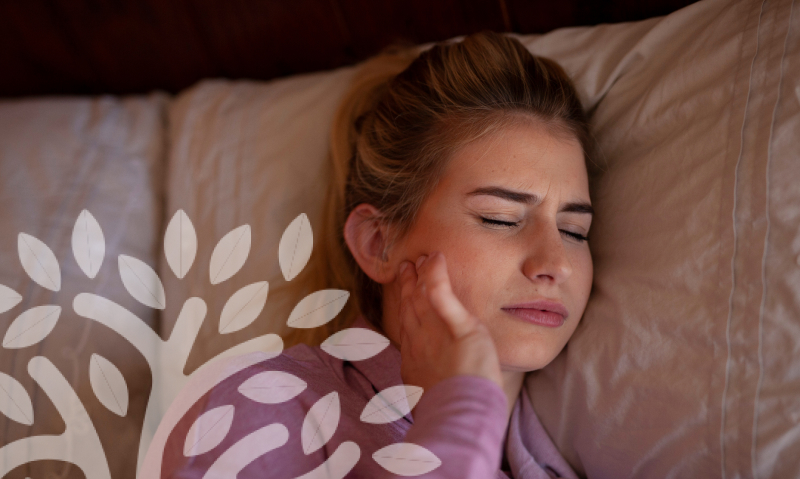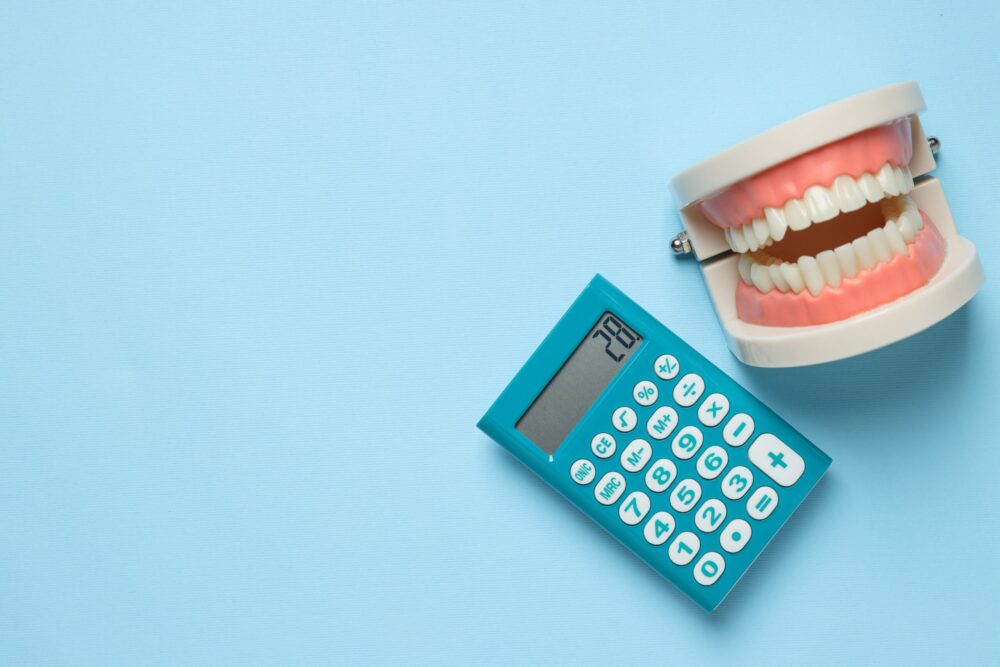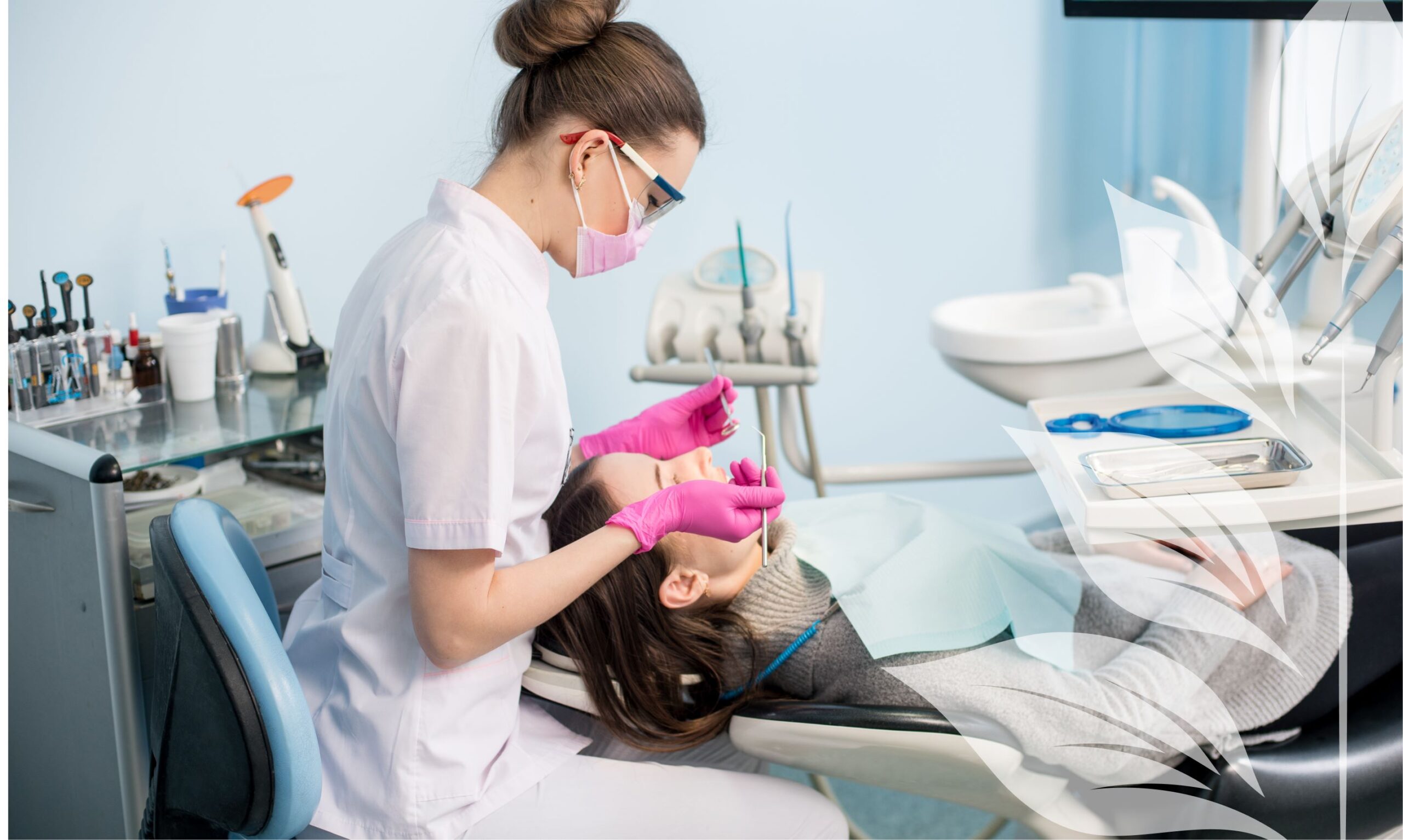Could you be grinding your teeth at night?
“Do you grind your teeth?” Your dentist asks while observing your teeth during a routine visit.
“I don’t think so,” you respond. After all, you don’t remember grinding your teeth, and you haven’t ever noticed yourself clenching your teeth during the day.
But just because you don’t remember grinding your teeth, does that mean you don’t? You might just not be aware of it, or you might be doing it in your sleep and never know. Here are eight telltale signs you might be grinding or clenching your teeth on a regular basis – perhaps while completely unaware of it.
1. You’re experiencing jaw pain.
Persistently clenching and grinding your teeth puts a lot of strain on your jaw. Your jaw is the most complex joint system in your body, and when one little thing is out of balance, it causes a ripple of symptoms throughout your jaw and the surrounding muscles. If you’ve been noticing that your jaw muscles feel tired or tight, if your jaw makes funny noises when you open and close it, or if you experience other TMD symptoms, the cause may be clenching and grinding your teeth at night.
2. Your head aches.
As you might have guessed, the stress that the constant clenching and grinding puts on your jaw radiates to other areas. People describe the bruxism headache as a dull ache that starts at their temples. However, grinding and clenching can even cause more severe headaches, including migraines. If you’re not sure what the root cause of your persistent headache is, and you check some of these other boxes, you might want to ask your dentist if your teeth show the signs of teeth grinding.
3. You have scarring on the sides of your cheeks.
Everyone occasionally bites the side of their cheeks when biting into food. But if that’s happening to you on a regular basis, it might be something to look into. People who grind their teeth are more prone to accidentally biting their cheek – they may do it when they’re eating, talking, and even sleeping.
4. Your teeth have become extra sensitive to cold and hot foods.
Tooth sensitivity can be caused by other oral conditions such as cavities and gum disease. But what if your teeth and gums are otherwise healthy and your teeth are still sensitive? The sensitivity may be caused by tooth grinding. When you grind your teeth on a regular basis, you slowly wear down the outer layer of your teeth, the enamel, causing some of the dentin to be exposed. As a result, your teeth become hypersensitive to cold and hot temperatures.
5. Your teeth are fractured, loose, or chipped without another known reason.
And in addition to just wearing down that outer layer of your tooth, grinding and clenching your teeth can also cause them to break. Our teeth are pretty strong. For example, when you bite down, on average your teeth exert 200 pounds of force. Your enamel is definitely capable of withstanding that force, but if clenching and grinding has become a consistent habit, your teeth can break or become loosened.
6. You have this pain that feels like an earache.
We’ve talked a lot about many different types of pain bruxism can cause. Another one that’s pretty specific is ear pain. If you feel like you have an earache, but you don’t actually have an ear infection, the culprit could be grinding and clenching. Why is this? The structures of the temporomandibular joint (see point #1) are in close proximity to the ear canal. As a result, the pain may radiate towards your ear, making you believe you have an ear infection. But the issue actually originates in your jaw.
7. Your neck and shoulders may even hurt.
And the amount of pain grinding can cause doesn’t quite stop there. Bruxism can, literally, be a pain in the neck. If you’re waking up in the morning with neck and shoulder pain, experiencing soreness, or if your neck or shoulder pain seems chronic, it may all come down to the stress that’s being placed on your jaw when you’re clenching or grinding during the night. Like we mentioned previously, this muscle soreness radiates and affects the surrounding areas.
8. Your sleep has been disrupted.
Yes, grinding and clenching can interfere with a solid, restful night’s sleep. You might wake up several times in the night. Or maybe your bed partner complains they can hear you grinding your teeth. You might just wake up in the morning, not feeling quite rested and ready for the day ahead. The good news is that at Allred Family Dentistry, we have solutions for you.
You may be a candidate for a custom oral appliance.
Dr. Allred can create a custom, well fitting mouth guard designed specifically for you to wear during the night to protect your teeth, prevent bruxism related jaw pain and headaches, and help you get a good night’s rest. Read more about our night guards for bruxism and book an appointment here.





